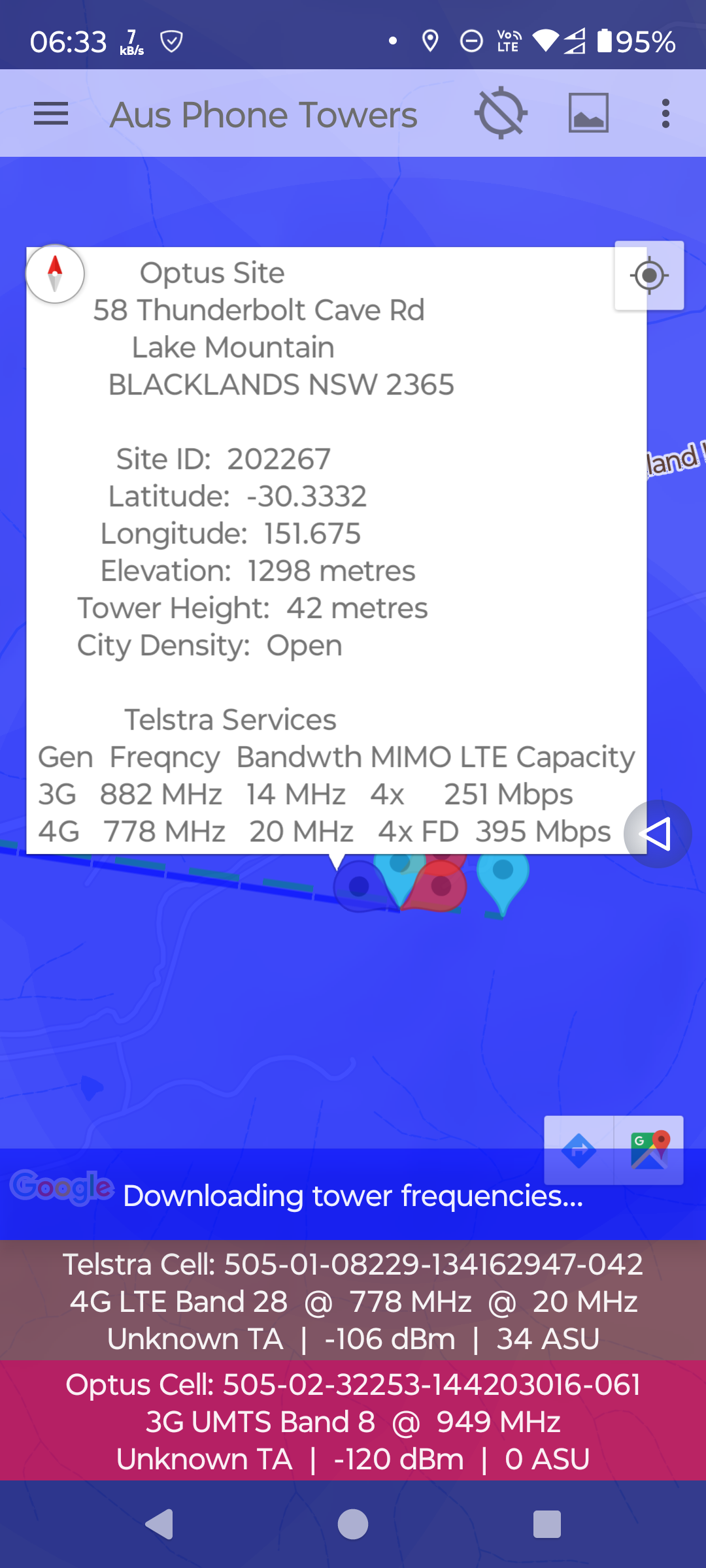Why do cell phones have a data limit but home internet doesn’t? I understand bandwidth limits, but how can home internet get away with giving users all the data they can use, but cell phone providers can’t?
My home Internet charges extra when I use more than 1 TB per month. Not sure but I think it’s metered both up and down.
damn, I share almost a TB/day.
Hopefully only Linux ISOs /s
Nintendo roms
Wow.
How many nintendo roms are there?
switch roms range from 6-20GB each. plus SNES, full collection about 5gb.
I remember Comcast suddenly started enforcing a limit of about 1 TB some years ago when I had them. Realized it happened when I renewed my contract to get a lower price again for a promotional period. Apparently I agreed to a new contract or something that included the new limit. >:|
Yep sounds familiar 😅
FCC is looking into that, I think it was during Trump’s administration
I currently have that cap and wondering how I will be able to play MSFS2024 under these conditions. Absolute trash they get to enforce this.
Had the same thought, and a rep already told me I’m 200gb away. Let’s hope some of the stuff is cached.
Just try to pnpy so flights at 30k ft or above so you don’t have to load ground textures lol
money.
data caps are coming to home internet soon too and with inescapable hidden contracts; switch to an independent isp to avoid it before you’re entrapped into one.
Ah yes I’ll just pick from one of the many ISPs in my area
they exist and they usually suck compared to something like comcast or at&t; but they’re much better than a $500 internet bill because you went over your limit or paying considerably more for breaking the contract that you didn’t know you signed when you didn’t read the fine print.
In a lot of places in the US there is only one home service provider.
i’m aware and fwiw; that’s where it’ll be implemented last since the people there are the biggest and best chance at pushing back against this successfully.
It is a proxy for don’t use too much on the busy towers. In small towns it doesn’t matter, but if you are in a downtown the tower will have many people connecting to it and the radio frequencies are shared. By putting a limit on everyone they force better sharing of that limited bandwidth. The limit is very large - far more that than the large abusers will use alone, but in a dense areas it is less than the common person will use all at once.
Tmoblie has (or had?) a binge on plan - if you used video (which we quickly figured out meant low quality - but probably good enough for a tiny phone screen) or audio you were using a lot of data, but it was consistent all day and so they didn’t have to count it - if the tower doesn’t have enough bandwidth for everyone on the first day of the month they have to fix that. That is the real worry: the tower running out of bandwidth on the first day of the month.
It depends where you live, Here pay $45usd for unlimited 1Gb/500Mbps Fibre and it is truly unlimited (usually 15-20Tb a month) and $35usd for unlimited 5G tho it’s throttled abit after 60Gb.
I have the opposite. Unlimited phone data, but it throttles above some high number that I’ve never hit. Capped home internet from crapcast, 1.3 TB, I haven’t hit it but I’ve come within a couple gigabytes.
They offer unlimited data if I use their modem/router for an extra $10/mo. Of course their modem comes with the wonderful feature of a public hotspot for any other Comcast customers in the area. I’ve been thinking about getting their modem, putting it in a metal box and just using pass through with my opnsense box.
If my phone didn’t have a cap, I’d hotspot it all, which is basically the idea of cellular home internet routers. I found a home router without a cap, which time will tell to be true, but it’s still more expensive than my phone with a very large but not unlimited cap.
They want to get paid, that’s the reasoning. The amount of data is really irrelevant except for pricing.
Roaming fees used to be the same until EU stepped in. Hopefully EU will eventually step in and order a full stop to ALL CAPS too. We live in the “future” now, right? Bring me my free unlimited connection so I can download that car they talked about.
I am lucky to have a local ISP that is amazing. I’m hoping that they never change.
Lots of home internet does have a data cap, but you might not realize it. Typically what will happen is that, once you hit your cap, you’ll be rate throttled. That throttle might not affect most video streaming since Netflix is really good at video compression, but you’ll see the hit if you are, for instance, downloading large games from PSN, Steam, etc.
Neither my phone internet nor my home internet has a GB limit. The phone internet costs 25€ a month, and home internet 30€.
My Comcast has a terabyte monthly data cap. They will send you an email if you get close to it, and if memory serves they allow you one time to go over it before they charge you some.
Even with downloading many big games sometimes when I refresh my PC and using streaming video apps all the time, I’ve never hit it but have come close several times. I also work from home.

For cell / mobile phones, you’re sharing the capacity of the cell among multiple people.
In this example, a rural cell tower can provide up to 395Mbps.
It would only take 40 people watching Kayo at high definition (or any high definition video service) via their phone or a 4G router to saturate this tower.
For everyone else at this time, it’ll still work but even though they might have a strong radio signal (lots of bars), the internet will become slow.
Limiting monthly usage, or charging more for more data per month, reduces the risk of saturation.
There aren’t going to be 40 people using that tower if it’s truly a rural tower. If it isn’t a rural tower then they can update it to handle more throughput. The issue isn’t the towers, it’s the companies wanting to keep using old tech to squeeze out as much profit as possible.
Both of you can be correct. The policy is prevalent to squeeze money out of consumers. However, it’s also easy to imagine more than 40 people in a rural area using their phones for media purposes during PM times in 2024. There’s less to do, internet availability might not exist for some or all residents, and people use their phone for everything now. Casting from a phone is a larger percent of viewing TV now.
In a rural area the population density is a lot less than that of suburbs or the city. We’re talking about 40 people or less using a single tower, this also takes in account of the 3 carriers. If each carriers tower can handle 40 people, that’s potentially 120 users total in a few mile radius, which is normal for rural populations.
This tower has about a 20km radius on average due to topography, covers a stretch of the New England Highway and also covers the nearby village of Black Mountain. A good few hundred phones will be in range I expect.
The tower also has cells for Optus and Vodafone, but they are a significant minority of customers in this area.
greed. some home internet services are also capped too for the exact same reason.
Home internet usually does, it’s just pretty high.
Not all home internet is unlimited. In many US rural areas, home internet connections have a monthly cap just like mobile networks do. A higher cap costs more, if it’s available at all.
In many US rural areas, home internet connections have a monthly cap
And suburban, and urban. I’ve never lived anywhere that didn’t have a cap.
And not all cell service is limited. I switched from cable to 5G fixed wireless, because I was tired of having a data cap. It’s faster and cheaper too.
In theory at least it’s because you pay for a specific bandwidth for home internet (the size of the pipe) but a specific amount of data for cellular (how much stuff you can get through a fixed sized pipe).
Home internet is a little unique in that way, almost all other utilities are consumption based with no real tiers in terms of how it’s delivered (you pay for the volume of water or gas you use, electricity is the same, just different units).
Networking equipment gets more expensive based on the bandwidth it supports, but it doesn’t much care how many bits you push through it. So ISPs charge based on their capacity to deliver those bits, and provide tiers at different price points. Cellular though is much more bandwidth constrained due to the technologies (and it used to be much more so before LTE and 5G), so it didn’t makes sense to charge you for slow or slower tiers. Instead the limiting factor is the capacity of a tower so by limiting data to small amounts it naturally discourages use. That model carried forward even now that the technologies support broadband speeds in some cases. As such and ISP could provide the biggest pipe (highest speed) to all homes and just charge based on consumption (they used to in the days of dial up, and satellite before starlink always has). Many ISPs instead are now double dipping though and charging for both.





